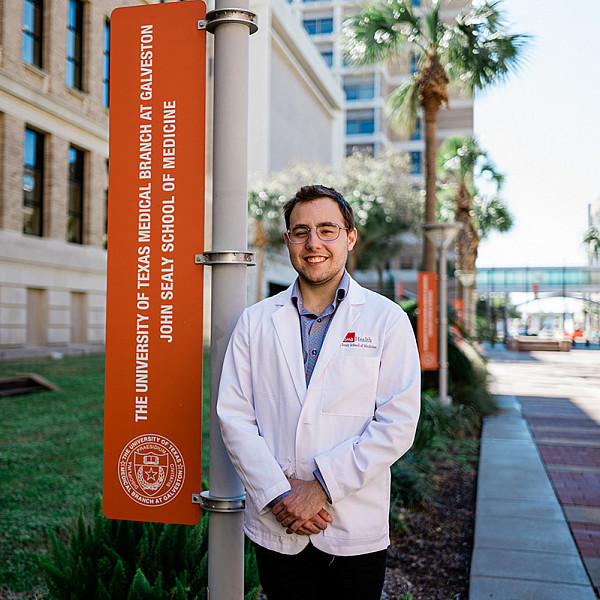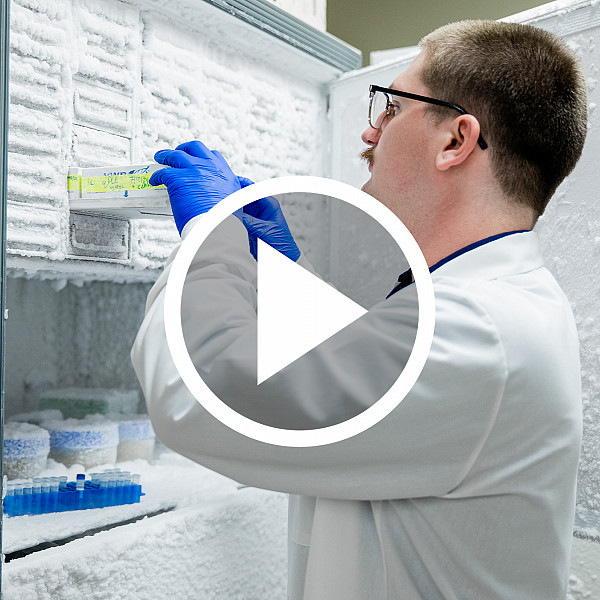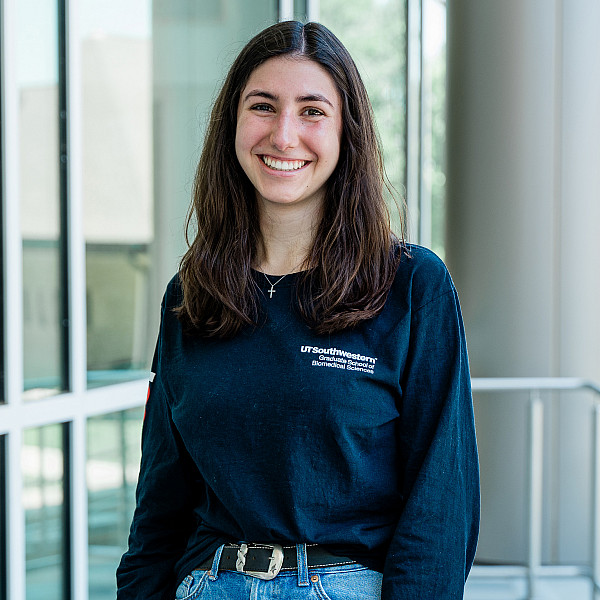News
Southwestern Alumna Gives the Gift of Life Through Compassionate and Expert Fertility Care
Erika (Sehne) Munch, M.D. ’04 has helped hundreds of patients experience the joys of parenthood through her role as a reproductive endocrinologist at Texas Fertility Center.
March 27, 2025
March 27, 2025
Open gallery
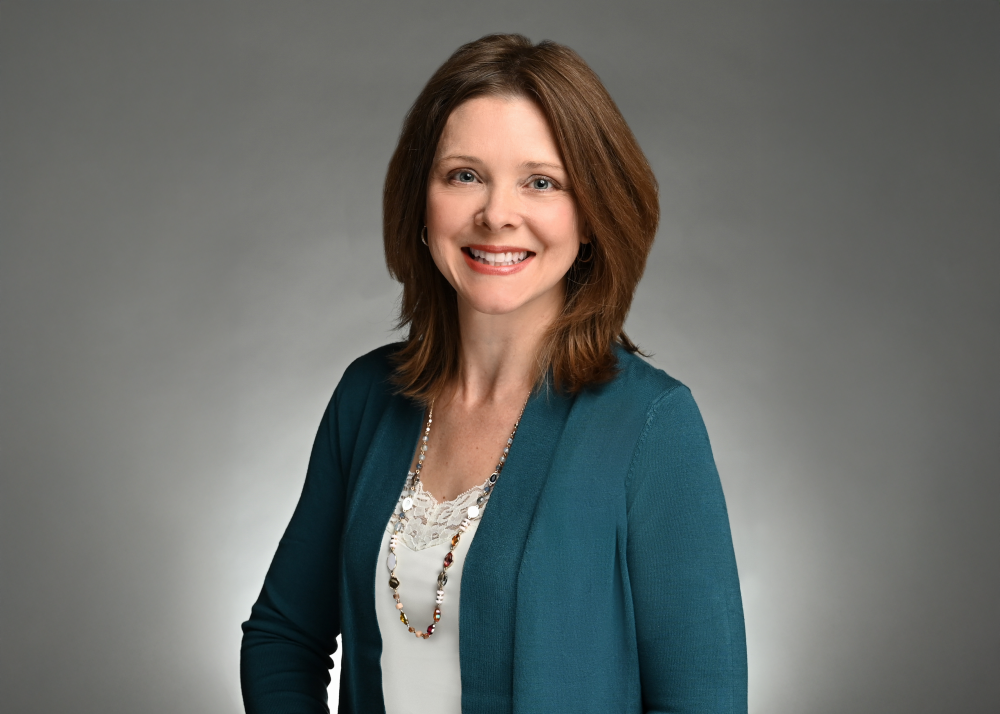
In the last decade, hundreds of births across the greater San Antonio area likely wouldn’t have been possible without the skills and expertise of Erika (Sehne) Munch, M.D. ’04. As a reproductive endocrinologist at Texas Fertility Center, Munch helps patients who are struggling to conceive experience the miracle of childbirth and the joys of parenthood.
“It is a very privileged role and I am very fortunate and blessed to be part of that,” Munch said. “I have very much always considered my role here, in what I’m doing for these families, to be part of their journey. What I do is very unique and very special, and I really do feel humbled to be part of that process for a lot of couples.”
From a young age, Munch knew that she was going to become a doctor, but she never envisioned that she would become one of the top reproductive endocrinology and infertility (REI) experts at one of Texas’ largest fertility centers. After graduating summa cum laude from Southwestern with a biology degree a semester early, Munch headed to Houston for medical school at Baylor College of Medicine.
Despite her original plan to study medicine in a broad sense to become a family medicine or primary care doctor, Munch developed interests in both urology and obstetrics/gynecology (OB/GYN) while in medical school. After earning her M.D. in 2008, she went on to obtain a certificate in public health at UT Health Houston, and thereafter matched with Baylor’s OB/GYN program to begin her residency. It was during this time that Munch became particularly interested in reproductive health and fertility.
“During my OB/GYN training, I was exposed to and took care of a lot of women who were really struggling to conceive,” she said. “In the program that I was in, which was in a county health system with very limited resources, there really wasn’t much attention or funding paid toward helping people get pregnant. I felt like that was a big disservice because family planning of all types is a big aspect of most women’s reproductive lives.”
With a newfound passion, Munch completed her OB/GYN residency at Baylor and was accepted to the University of Iowa’s renowned Reproductive Endocrinology & Infertility Fellowship in 2013. After completing the program and earning board certifications in both OB/GYN and REI, Munch returned home to Central Texas to join Texas Fertility Center in San Antonio.
“Part of the reason that I chose Southwestern specifically was because it had a pretty strong track record of getting pre-med students placed at some of the better institutions in the country for medicine.” — Erika (Sehne) Munch, M.D. ’04
Since beginning her professional career in 2016, Munch has helped a wide variety of patients plan and build their families using a range of tools and technologies, including in vitro fertilization (IVF), intrauterine insemination (IUI), egg and sperm donation, intracytoplasmic sperm injection (ICSI), and reconstructive fertility surgery.
In addition to assisting couples struggling to conceive, she has helped cancer patients with cryopreservation of their eggs and embryos for future use, as well as those seeking third-party reproductive assistance. She also provides preconception counseling for patients looking to plan their family-building goals.
“Most couples are not planning to ever come into my office,” Munch said. “It’s not a part of their expected life journey to experience infertility. Nobody plans to go through the stress and trauma of having that diagnosis and having to jump over many hurdles to achieve something that others can achieve quite easily. It feels unfair and there’s a lot of hurt and sadness, guilt and uncertainty that goes with that. It’s a journey that no one should have to walk alone.”
As a practitioner in one of the most personal and intimate fields of medicine, Munch has found tremendous benefit from a somewhat unexpected place – a health psychology course that she took during her time at Southwestern.
“Knowing biochemistry is important, but [understanding psychology] is even more important in a different way because I use that every day as I’m speaking with my patients and helping them understand what their options are,” Munch said. “Much of what I do is very science and medicine-driven, but a lot of what I do is based on caring and communication with patients, and many of those other aspects of the soft social sciences.”
On top of her role as an REI expert, Munch is also a passionate researcher, striving to help improve the reproductive health field through scientific and data discovery. This passion led to a role as an associate editor for Human Reproduction Update, the leading journal in human reproductive physiology and medicine.
“Southwestern gave me the opportunities that I needed to succeed in my profession. And along the way, I met lifelong friends and my future spouse. I got a lot of great things out of Southwestern besides just my degree.” — Erika (Sehne) Munch, M.D. ’04
Munch began to build the foundation that she would use to succeed both in medical school and in her career during her time at Southwestern. Between her sophomore and junior year, she attended the Summer Undergraduate Research Training (SMART) program at Baylor College of Medicine, allowing her to pursue biomedical research as an undergraduate student. In addition to gaining experience in a laboratory setting, Munch was able to parlay her summer research into her senior capstone project.
“That was a very unique-to-Southwestern experience,” she said. “Presenting a capstone, at least in the way that I did it, was not that dissimilar to when a graduate student defends their dissertation. The way that my professors had me go through it was very much to the same standard that graduate-level students are held to when trying to defend for their Ph.D. I think that was excellent preparation for going into my graduate program.”
Growing up in Northwest Austin, Munch was first introduced to Southwestern through her high school guidance counselor, who was able to connect her desire to attend medical school with Southwestern’s history of successful pre-professional programs.
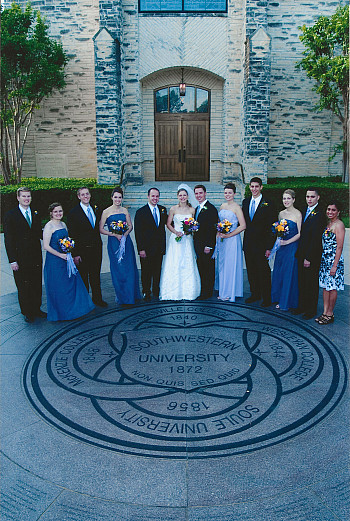
Munch embodied a Paideia philosophy, even before Southwestern officially launched the University’s Paideia program. A gifted student, she earned minors in both chemistry and German, in addition to her biology major. Outside of the classroom, Munch stayed active across campus. She was a student-athlete on the Pirate swim team, played piano, and served on Student Judiciary, as well as the leadership of Southwestern’s chapter of Alpha Phi Omega, the national co-ed service fraternity, including as President during her junior year.
But perhaps the most life-changing aspect of her time at SU, Munch found her Southwestern Sweetheart on campus, Joe Munch ’03, and they married in the Lois Perkins Chapel two years after graduation.
“Southwestern gave me the opportunities that I needed to succeed in my profession,” Munch said. “And along the way, I met lifelong friends and my future spouse. I got a lot of great things out of Southwestern besides just my degree.”
















